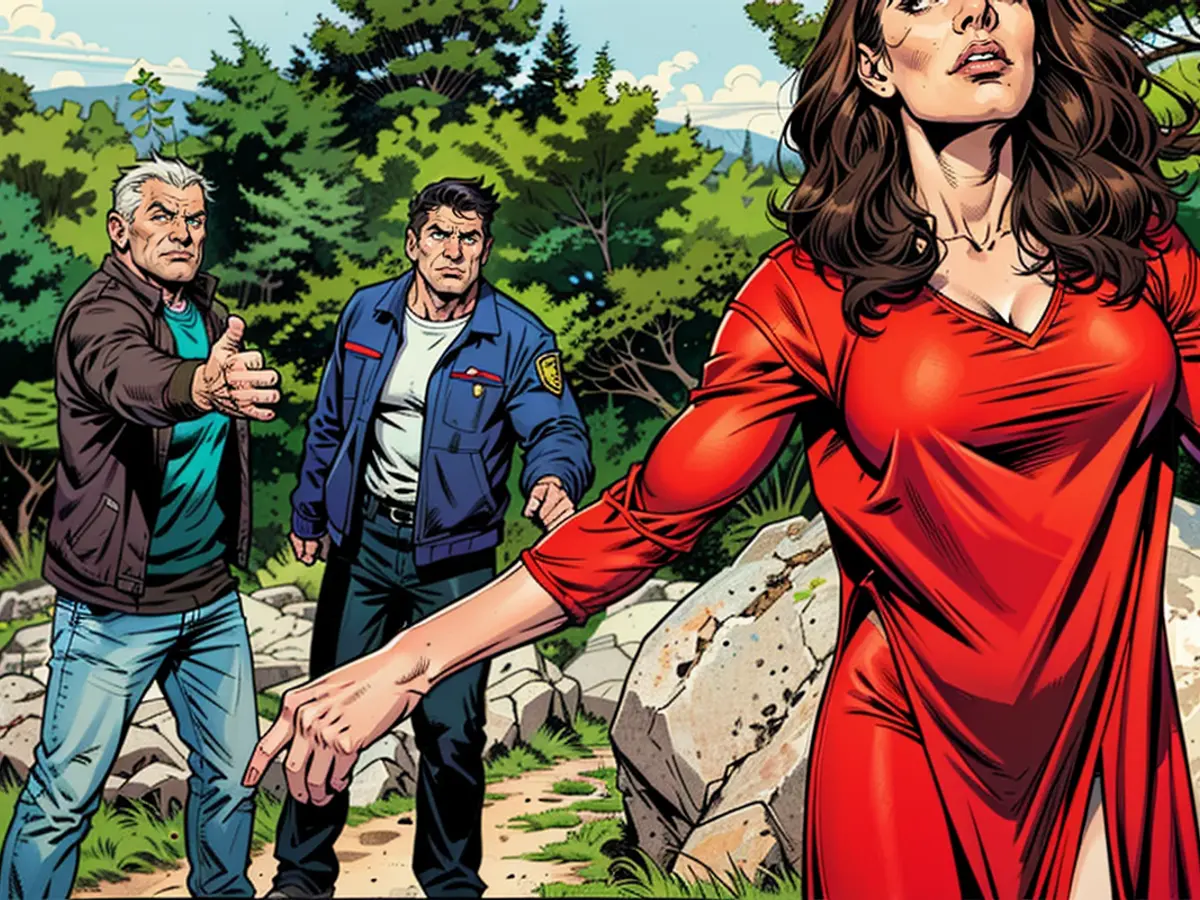Crime thriller in the first - Deadly hatred of otherness - the "Croatia thriller"
A corpse in an advanced state of decay is not a pleasant sight. In the eleventh case of "Croatian Crime," the viewer is unfortunately presented with this sight repeatedly. The victim in question is not a woman, but a young man, or rather a person between the two genders. Anton (Riccardo Campione, "Gladbeck") alias Antonia was transgender. Did the victim have to die because of this? Stascha Novak (Jasmin Gerat, "Einmal Sohn, immer Sohn"), the tough leader of the Split Murder Commission, and her colleague Emil Perica (Lenn Kudrjwizki) are shocked. The case from the year 2022 airs every Thursday at 8:15 PM on Ersten.
Stascha and Emil investigate in front of a picturesque Adriatic Sea backdrop among the people Anton grew up with. Most of them appear extremely religious, to put it mildly. So does the uncle of the victim, Ivan Rudovic (Joachim Nimitz), and the local policeman Marko Mikec (Thomas Dehler).
Unclear time of death
The search for the perpetrator is complicated by a puzzle: The body was indeed found at the foot of a steep cliff on a road. However, the autopsy reveals that the bone fractures were not fresh. The dead person had been deeply frozen, making it impossible to determine the time of death - it could be years ago.
The commissioner believes she's dealing with a revenge campaign against a person with an unconventional sexual orientation. "In Rijeka or in Zagreb - something like that is going around," her colleague Mikec warned from the mountain village when the identity of the victim in the red dress was revealed.
The city dweller scowls at the supposedly medieval Catholicism of the rural population. Her colleague Emil, who grew up in the region, explains to her that many of them belong to a specific religious group called "Our Family." But a true Christian faith was taught to him by his own mother. "We are all children of God," says the young investigator.
A weapon for Tolerance and Neighborly Love
The filmmakers seem to want to shatter a spear for Tolerance and Neighborly Love - various sexual identities are shown as normal and lovable. It's a shame that this is done so blatantly.
Not only the dialogues, in which the institution Church is repeatedly portrayed negatively, come across as one-dimensional. Even the repeated images of the young Antonia in her decaying state are likely to serve no other purpose than to show where Intolerance leads. In this way, an important and sympathetic social issue unfortunately turns into a didactic lesson of a crude kind. And a television crime series becomes unnecessarily burdened.
- Despite the unsettling depiction of 'Decomposition' in the TV series "Croatian Crime," the case of the deceased transgender individual, Stascha Novak and her team are determined to uncover the 'Otherness' and potential motives behind the 'Death.'
- The investigation takes place in the serene backdrop of 'Berlin' and 'Split,' but the 'Media' portrays the rural population as fundamentally 'Religious,' making it challenging for Stascha to find allies.
- The 'Time of death' remains undetermined due to the victim's 'Deeply frozen' body, leading to complications in identifying the perpetrator and solving the crime.
- Initially, Stascha is skeptical of the 'Medieval Catholicism' in the rural areas, but her colleague Emil 'Our Family' member, explains the community's unique beliefs, urging her to remain open-minded.
- 'Croatian Crime' appears to promote 'Tolerance and Neighborly Love' through its portrayal of various 'Sexual identities,' but some viewers find the approach 'Blatant' and 'Didactic.'
- The series' treatment of the 'Institution Church' as negatively portrayed in dialogues and images of the deceased 'Antonia' in a 'Decaying state' may be seen as serving only as a cautionary tale, potentially overshadowing the 'Sympathetic social issue.'
- As the series 'For the 4th of July' continues, it remains to be seen if the 'Television' industry can balance its advocacy for 'Tolerance' and 'Love' without appearing overly preachy to its audience.








